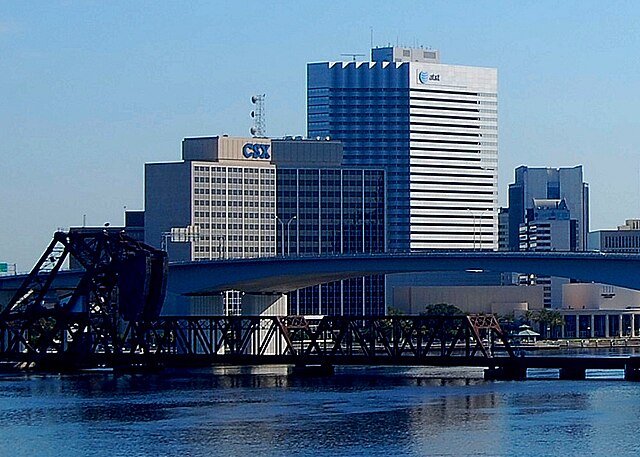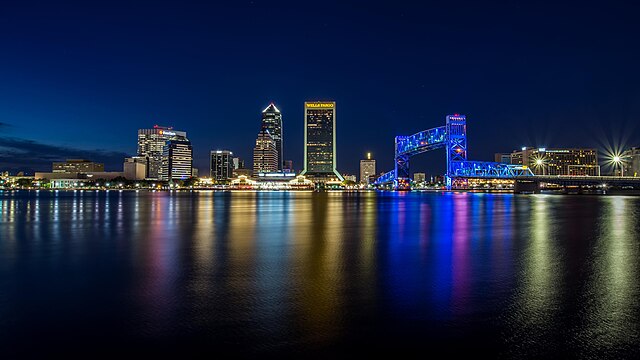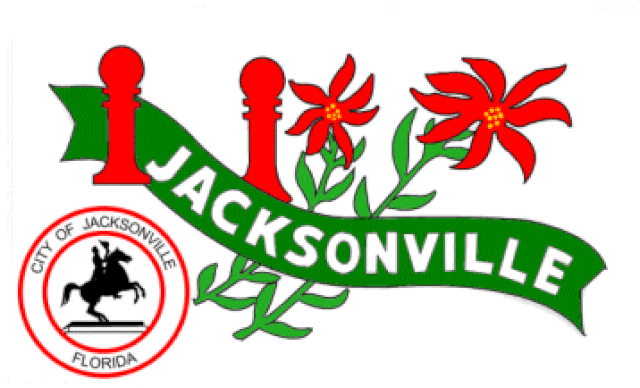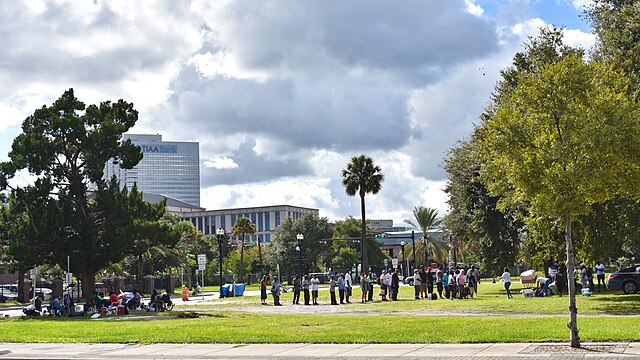Have you ever wondered why Jacksonville’s weather feels like a rollercoaster ride? One minute you’re enjoying perfect sunshine, and the next, you’re caught in a surprise afternoon thunderstorm. Welcome to the fascinating world of Jacksonville weather, where subtropical climate meets coastal influences to create a unique meteorological experience that keeps residents and visitors on their toes year-round.
Jacksonville, Florida’s weather is more than just sunny skies and beach days. It’s a complex system influenced by its geographic location, proximity to both the Atlantic Ocean and St. Johns River, and its position in the southeastern United States. Whether you’re a longtime resident, planning a move, or just visiting, understanding Jacksonville’s weather patterns can help you make better decisions about everything from daily outfit choices to major life events.
Understanding Jacksonville’s Climate Basics
Jacksonville operates under a humid subtropical climate, which means you’ll experience hot, humid summers and mild, relatively dry winters. But what does this really mean for your daily life? Think of it as nature’s way of providing variety without the extreme temperature swings you’d find in northern climates.
The city’s average annual temperature hovers around 68°F, making it comfortable for outdoor activities most of the year. However, don’t let that average fool you – summer temperatures regularly soar into the 90s, while winter nights can occasionally dip into the 30s. It’s this temperature range that gives Jacksonville its distinctive seasonal personality.
Subtropical Weather Patterns
The subtropical classification isn’t just a fancy meteorological term – it’s the key to understanding why Jacksonville weather behaves the way it does. This climate zone is characterized by distinct wet and dry seasons, with the majority of rainfall occurring during the warmer months. You’ll notice that summer brings not just heat, but also dramatic afternoon thunderstorms that can transform a blazing hot day into a temporarily cooler, albeit humid, evening.
These weather patterns create what locals call “Florida time” – the understanding that outdoor plans might need to be flexible. The good news? Most afternoon storms are brief, intense, and followed by clearer skies. It’s like nature’s way of providing air conditioning for the great outdoors.
Geographic Influences on Weather
Jacksonville’s position along the Atlantic coast and the meandering St. Johns River creates unique microclimates throughout the city. Areas closer to the ocean tend to experience more moderate temperatures due to the sea breeze effect, while inland neighborhoods can be several degrees warmer during summer days.
The St. Johns River acts as a natural temperature moderator, helping to keep downtown areas slightly cooler in summer and warmer in winter. This geographic diversity means that your weather experience might differ depending on which part of Jacksonville you call home. Riverside and downtown areas often feel different from the beaches or suburban neighborhoods further inland.
Seasonal Weather Breakdown

Understanding Jacksonville’s seasons requires throwing out your traditional four-season mindset. Instead, think of it as having two main seasons: a warm, wet season and a cooler, dry season, with transitional periods that offer the best of both worlds.
Spring Weather in Jacksonville (March-May)
Spring in Jacksonville is like a preview of paradise. This is when the city truly shines, offering comfortable temperatures, lower humidity, and just enough rainfall to keep everything green and blooming. March typically starts with highs in the mid-70s, gradually warming to the low 80s by May.
What makes spring special isn’t just the temperature – it’s the perfect balance of sunshine and gentle breezes. You’ll find that this is peak outdoor activity season, when locals dust off their bikes, plan picnics, and spend weekends exploring the city’s many parks and waterfront areas.
Temperature and Humidity Trends
Spring temperatures in Jacksonville are remarkably consistent, with daily highs ranging from 75°F to 82°F and nighttime lows between 50°F and 65°F. The humidity levels are at their most comfortable, typically ranging from 60% to 75%. This combination creates that perfect “windows open” weather that makes you forget why you ever needed air conditioning.
The gradual warming trend means you can plan outdoor activities with confidence. Unlike summer, when afternoon thunderstorms are almost guaranteed, spring offers more predictable weather patterns. Rain, when it comes, tends to be gentler and less frequent than the dramatic summer downpours.
Rainfall Patterns
Spring rainfall in Jacksonville averages about 3-4 inches per month, distributed fairly evenly throughout the season. These aren’t the heavy, daily afternoon storms of summer, but rather periodic rain systems that move through the area. The rain tends to be more widespread and longer-lasting than summer storms, but much less intense.
This rainfall pattern is actually ideal for outdoor enthusiasts. You might experience a rainy day or two each week, but they’re usually predictable enough to plan around. The rain also helps maintain the lush, green landscape that makes Jacksonville so beautiful during this season.
Summer Weather Patterns (June-August)
Summer in Jacksonville is an intense, immersive experience that defines the city’s character. This is when the subtropical climate really shows its personality, with hot, humid days punctuated by spectacular afternoon thunderstorms. Daily highs consistently reach the low to mid-90s, with heat index values often exceeding 100°F.
But here’s the thing about Jacksonville summers – they’re predictable in their unpredictability. You can almost set your watch by the afternoon thunderstorms that roll in between 2 PM and 6 PM. These storms are nature’s daily drama, complete with lightning shows that rival any fireworks display.
Heat and Humidity Challenges
Summer humidity in Jacksonville regularly reaches 80-90%, creating that thick, almost tangible air that newcomers find challenging. The combination of high temperatures and humidity creates heat index values that can be dangerous for prolonged outdoor exposure. This is why most locals adjust their schedules, planning outdoor activities for early morning or evening hours.
The key to surviving Jacksonville summers is understanding that it’s not just about temperature – it’s about respecting the humidity. Your body’s natural cooling system works harder in high humidity, which is why a 90°F day in Jacksonville feels much hotter than the same temperature in a dry climate.
Afternoon Thunderstorms
Jacksonville’s summer thunderstorms are legendary among locals and fascinating to weather enthusiasts. These storms typically develop due to the collision of sea breezes from the Atlantic with the heated land mass, creating perfect conditions for dramatic weather events. The storms usually last 30-60 minutes but can produce heavy rainfall, strong winds, and impressive lightning displays.
What’s remarkable about these storms is their localized nature. It’s entirely possible for one neighborhood to experience a downpour while an area just a few miles away remains completely dry. This hyperlocal weather pattern means that weather apps and forecasts can only give you a general idea – you’ll need to watch the sky and trust your instincts.
Fall Weather Conditions (September-November)
Fall in Jacksonville is a gradual transition that many consider the city’s second-best season. September often still feels like summer, with high temperatures and afternoon storms, but October and November bring relief in the form of lower humidity and more comfortable temperatures. This is when the city’s outdoor spaces become enjoyable again after the intense summer heat.
The fall season also marks the end of the intense thunderstorm pattern, with weather becoming more stable and predictable. Temperatures gradually drop from the high 80s in September to the comfortable 70s in November, while humidity levels decrease significantly. This creates perfect conditions for outdoor festivals, sports events, and recreational activities.
Fall is also when Jacksonville experiences some of its most beautiful weather days – those crisp, clear days with low humidity, gentle breezes, and brilliant sunshine that remind you why Florida is called the Sunshine State. These are the days that make residents forget about the challenging summer months and appreciate the unique beauty of living in a subtropical climate.
Winter Weather in Jacksonville (December-February)
Winter in Jacksonville defies many people’s expectations of Florida weather. While it’s certainly mild compared to northern climates, it’s not the endless summer that some imagine. Daily highs typically range from the mid-60s to low 70s, with nighttime temperatures that can drop into the 40s or even 30s on rare occasions.
What makes Jacksonville winters unique is their variability. You might experience a week of 75°F sunshine followed by a cold front that drops temperatures into the 40s overnight. This variability requires a flexible wardrobe and the ability to adapt quickly to changing conditions. It’s not uncommon to start the day in a jacket and end it in shorts.
Winter is Jacksonville’s dry season, with significantly less rainfall than other times of the year. This, combined with lower humidity levels, creates some of the most comfortable weather conditions of the year. Many residents consider winter the perfect time for outdoor activities, camping, and exploring the city’s natural areas.
Hurricane Season and Severe Weather

Living in Jacksonville means respecting hurricane season, which officially runs from June 1st through November 30th. While Jacksonville doesn’t experience hurricanes as frequently as other Florida coastal areas, the city has had its share of significant storms over the years. The most recent major impact was from Hurricane Irma in 2017, which caused widespread power outages and flooding.
Understanding hurricane risk in Jacksonville requires looking at geography and historical patterns. The city’s position along the Atlantic coast makes it vulnerable to storms approaching from the southeast, while its inland location along the St. Johns River can create flooding concerns during major weather events.
Hurricane Preparedness
Hurricane preparedness in Jacksonville isn’t just about boarding up windows and buying bottled water – it’s about understanding your specific risks based on where you live. Areas near the coast face different challenges than neighborhoods along the St. Johns River or in inland locations. Flooding can be a concern even from storms that don’t make direct landfall, as the river system can back up during heavy rainfall events.
The key to hurricane preparedness is having a plan that accounts for Jacksonville’s unique geography. This includes understanding evacuation zones, having multiple communication plans, and preparing for potential power outages that can last several days. Many longtime residents also emphasize the importance of maintaining hurricane supplies year-round rather than waiting for a storm to threaten.
Severe Weather Alerts
Jacksonville’s location means residents need to stay informed about various types of severe weather beyond hurricanes. Tornado warnings, while less common than in other parts of the country, do occur, particularly during the transition seasons. Severe thunderstorm warnings are much more frequent, especially during summer months when atmospheric conditions can create dangerous wind and hail conditions.
The National Weather Service office in Jacksonville provides excellent coverage for the region, with detailed forecasts and timely warnings. Understanding the difference between watches and warnings, and knowing how to receive emergency alerts on your mobile device, are essential skills for anyone living in or visiting the area.
Best Weather Apps and Resources
Staying informed about Jacksonville weather requires using reliable, up-to-date resources. The National Weather Service website and mobile app provide the most accurate official forecasts, while local television stations offer additional context and local knowledge that can be invaluable during severe weather events.
For daily weather planning, apps like Weather Underground, AccuWeather, and Weather.com offer detailed hourly forecasts that can help you plan outdoor activities around those famous afternoon thunderstorms. Many locals also rely on radar apps that show real-time precipitation, which can be crucial for timing outdoor activities during summer months.
Social media has also become an important weather resource, with local meteorologists providing real-time updates and answering questions during severe weather events. Following local weather professionals on Twitter or Facebook can provide insights that go beyond what you’ll find in standard weather apps.
Weather-Related Activities and Planning
Understanding Jacksonville weather patterns opens up a world of opportunities for outdoor activities and event planning. The key is matching your activities to the season and being flexible enough to adapt to changing conditions.
Outdoor Activities by Season
Spring and fall offer the best conditions for hiking, biking, and exploring Jacksonville’s extensive park system. These seasons provide comfortable temperatures and lower humidity, making physical activities more enjoyable. Summer is perfect for water-based activities – the heat makes swimming, boating, and beach activities not just pleasant but necessary for staying cool.
Winter brings unique opportunities for outdoor activities that would be uncomfortable during hotter months. This is the perfect time for camping, outdoor festivals, and sports activities. The mild temperatures and low humidity create ideal conditions for activities that would be challenging during summer’s heat and humidity.
Event Planning Considerations

Planning outdoor events in Jacksonville requires understanding both seasonal patterns and daily weather rhythms. Summer events need to account for afternoon thunderstorms, either by planning indoor backup options or scheduling activities for morning or evening hours. Winter events should have contingency plans for the occasional cold front that can drop temperatures unexpectedly.
The most successful outdoor events in Jacksonville are those that work with the weather rather than against it. This might mean providing shade and cooling stations during summer events, or having warming areas available during winter gatherings. Understanding your audience’s comfort level with different weather conditions is also crucial for successful event planning.
Conclusion
Jacksonville weather is a fascinating blend of subtropical climate, coastal influences, and seasonal variation that creates a unique living experience. From the perfect spring days that make you want to spend every moment outdoors, to the dramatic summer thunderstorms that provide daily entertainment, to the mild winters that offer relief from humidity and heat – each season brings its own character and opportunities.
The key to enjoying Jacksonville weather is understanding its patterns, respecting its power, and adapting your lifestyle to work with rather than against its natural rhythms. Whether you’re planning a visit, considering a move, or have called Jacksonville home for years, appreciating the complexity and beauty of the local weather patterns enhances your connection to this vibrant coastal city.
Remember that weather prediction is never perfect, especially in a location as meteorologically complex as Jacksonville. Stay informed, be prepared, and embrace the subtropical lifestyle that makes this city unique. After all, where else can you experience a perfect spring morning, a dramatic afternoon thunderstorm, and a peaceful evening sunset all in the same day?
Frequently Asked Questions
Q: What is the best time of year to visit Jacksonville for pleasant weather?
A: The best weather in Jacksonville typically occurs from March through May and October through November. These periods offer comfortable temperatures, lower humidity, and minimal rainfall, making them ideal for outdoor activities and sightseeing. Spring (March-May) is particularly beautiful with blooming flowers and consistently pleasant conditions.
Q: How accurate are weather forecasts for Jacksonville, especially regarding afternoon thunderstorms?
A: Weather forecasts for Jacksonville are generally accurate for temperature and general conditions, but predicting exact timing and location of afternoon thunderstorms can be challenging. These storms are highly localized and can develop quickly. It’s best to monitor radar apps during summer months and be prepared to adjust outdoor plans accordingly.
Q: Does Jacksonville experience hurricanes frequently?
A: Jacksonville is less frequently impacted by hurricanes compared to other Florida coastal areas, but it’s not immune. The city faces hurricane risk primarily from June through November, with the peak season being August through October. While direct hits are relatively rare, the area can experience significant impacts from storms making landfall nearby.
Q: How should I dress for Jacksonville weather throughout the year?
A: Jacksonville weather requires a versatile wardrobe. Summer calls for lightweight, breathable fabrics and rain gear for afternoon storms. Winter requires layers, as temperatures can vary significantly between day and night. Spring and fall are most comfortable with light layers. Always keep a light jacket handy for air-conditioned indoor spaces and unexpected weather changes.
Q: What makes Jacksonville’s humidity different from other Florida cities?
A: Jacksonville’s humidity is influenced by its position along both the Atlantic coast and the St. Johns River, creating unique microclimates throughout the city. Areas near the water tend to have slightly moderated humidity due to sea breezes, while inland areas can feel more humid during summer months. The city’s humidity levels are generally consistent with other North Florida locations but can vary significantly within different neighborhoods.

